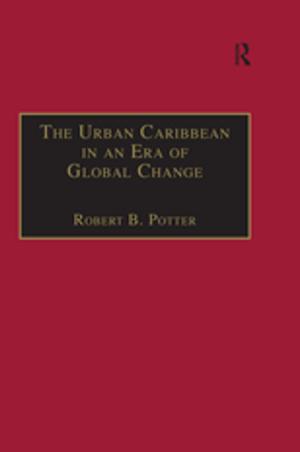Creating a New Consensus on Population
The Politics of Reproductive Health, Reproductive Rights, and Women's Empowerment
Business & Finance, Economics, Economic Development| Author: | Jyoti Shankar Singh | ISBN: | 9781317972792 |
| Publisher: | Taylor and Francis | Publication: | November 12, 2013 |
| Imprint: | Routledge | Language: | English |
| Author: | Jyoti Shankar Singh |
| ISBN: | 9781317972792 |
| Publisher: | Taylor and Francis |
| Publication: | November 12, 2013 |
| Imprint: | Routledge |
| Language: | English |
Population growth, reproductive health and reproductive rights are amongst the most pressing issues facing governments and the international community. Since the world's governments agreed for the first time on far-reaching and enlightened population policies at the 1994 International Conference on Population and Development (ICPD) in Cairo, a good deal of progress has been made on these issues, but major challenges remain. This fully updated edition of Creating a New Consensus on Population charts international progress on efforts to address population and development, reproductive health, reproductive rights, religion, contraception and the empowerment of women. Historical coverage includes the lead up process to the ICPD, the conference itself and the global consensus and the ICPD Programme of Action that resulted. The book then turns to how population issues have developed over the past decade and a half including follow-up and implementation at the international level by the United Nations Population Fund (UNFPA) and other UN agencies and organizations. Key international events are covered including the 1999 ICPD+5, Millennium Summit 2000, ICPD+10 and the 2005 MDG+5 as well as relevant regional events. The book also examines the reorientation of policies and programmes and implementation at national levels across the world. Crucially, it looks at emerging issues and partnerships including the increasing role of NGOs, women's groups, youth groups, foundations, public-private partnerships and other non-state stakeholders. Written by Jyoti Shankar Singh, former ICPD Executive Coordinator, this is the definitive account of how the international community has engaged with population issues and policies and it offers insight into both the ongoing challenges as well as how an international consensus can be forged on crucial global issues. It is essential reading for all those involved in population, health and development issues and policies world-wide.
Population growth, reproductive health and reproductive rights are amongst the most pressing issues facing governments and the international community. Since the world's governments agreed for the first time on far-reaching and enlightened population policies at the 1994 International Conference on Population and Development (ICPD) in Cairo, a good deal of progress has been made on these issues, but major challenges remain. This fully updated edition of Creating a New Consensus on Population charts international progress on efforts to address population and development, reproductive health, reproductive rights, religion, contraception and the empowerment of women. Historical coverage includes the lead up process to the ICPD, the conference itself and the global consensus and the ICPD Programme of Action that resulted. The book then turns to how population issues have developed over the past decade and a half including follow-up and implementation at the international level by the United Nations Population Fund (UNFPA) and other UN agencies and organizations. Key international events are covered including the 1999 ICPD+5, Millennium Summit 2000, ICPD+10 and the 2005 MDG+5 as well as relevant regional events. The book also examines the reorientation of policies and programmes and implementation at national levels across the world. Crucially, it looks at emerging issues and partnerships including the increasing role of NGOs, women's groups, youth groups, foundations, public-private partnerships and other non-state stakeholders. Written by Jyoti Shankar Singh, former ICPD Executive Coordinator, this is the definitive account of how the international community has engaged with population issues and policies and it offers insight into both the ongoing challenges as well as how an international consensus can be forged on crucial global issues. It is essential reading for all those involved in population, health and development issues and policies world-wide.















